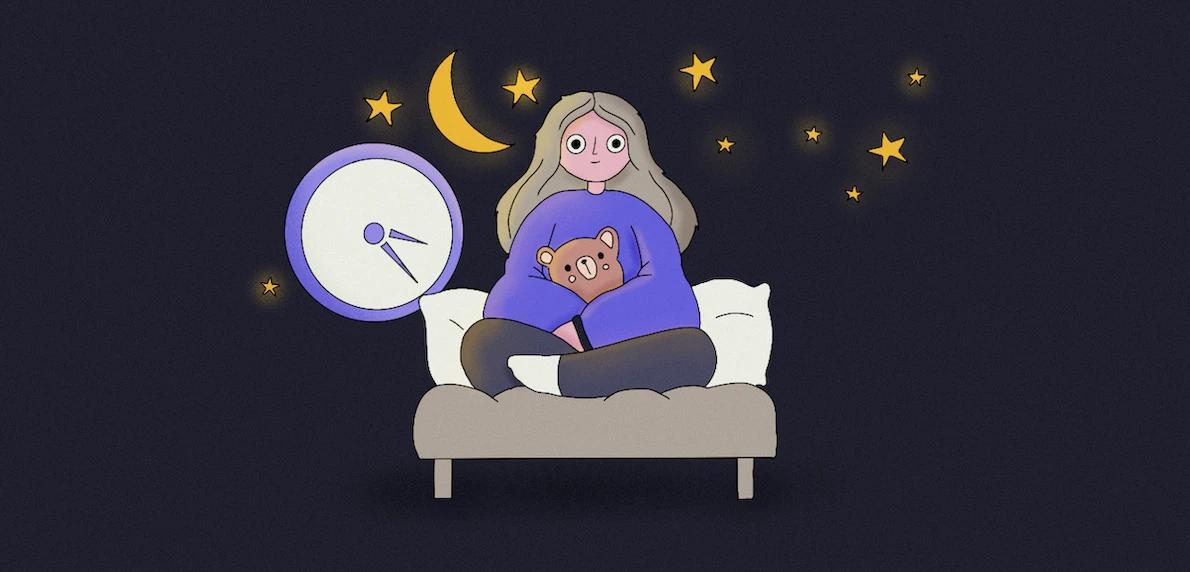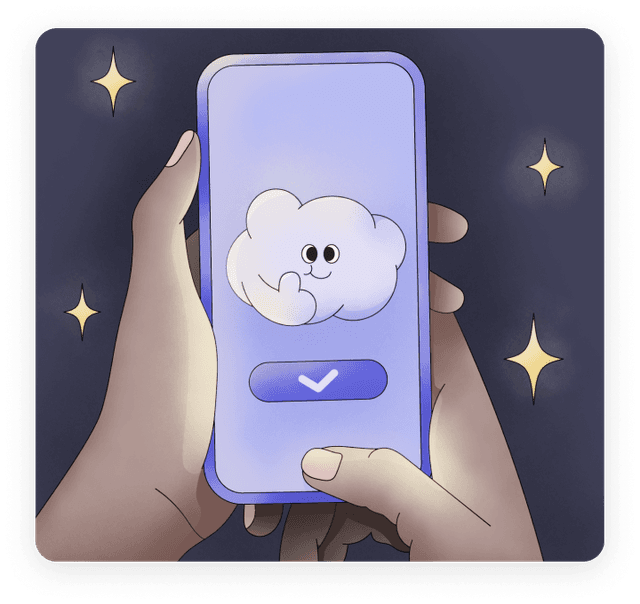
Denys Chumak
28 Aug 2023
The Impact of Bad Dreams on Mood
1. Introduction
Have you ever woken up feeling anxious, sad or even angry after a bad dream? We often don't realise how much our dreams affecting mood and emotion. As you roll out of bed, still half asleep, those lingering feelings from your dreams follow you into consciousness, colouring your perception of the day ahead before you've even had your morning coffee.
Our subconscious is busy at work while we sleep, processing our experiences, relationships and unresolved feelings from the day before. Next time you wake up from an unpleasant dream, don't just brush it off and move on with your day. Pay attention to how it makes you feel and what it might be trying to tell you. Our dreams have a lot to say if we're willing to listen.
2. Why Do We Categorise Certain Dreams as Bad or Good?
Ever wonder why do we dream and why some dreams leave you feeling uneasy or anxious when you wake up? The answer lies in how our brains process emotions during the dream state.
When we dream, our brains can conjure up all sorts of bizarre and unsettling scenarios. The emotions we experience in these "bad" dreams then carry over into our waking lives, influencing our moods and mental state. This is because the parts of our brain that process emotions are active during REM sleep when most dreaming occurs.
So what makes a dream "bad" or frightening? Often it's threats to our safety, security, or self-esteem. Dreams of being chased, falling, or embarrassing yourself in public are common examples. These activate our brain's fear and anxiety centres, releasing stress hormones that linger after waking.
The effects tend to be temporary, but frequent or traumatic nightmares can be a sign of an anxiety or mood disorder and may require treatment. Some tips for coping with bad dreams:
• Practice reality checks. Remind yourself that it was just a dream, and you are now safe. • Avoid screens/stimulation before bed. Wind down with a relaxing routine. • Write down your dreams. This can reduce their emotional impact and uncover their meaning. • Try lucid dreaming techniques. Becoming aware you are dreaming can help turn a nightmare into an adventure. • Talk to someone. Sharing the emotions from a bad dream helps defuse their power over your mood and state of mind.
While bad dreams may be unpleasant, they can provide insight into our mental and emotional lives. By understanding them better, we can achieve more balance and control over our moods and improve our waking lives.
3. Why Do We Have Bad Dreams?
Why do we have bad dreams? There are a few reasons our subconscious conjures up scary scenarios while we sleep:
A. Unresolved anxiety or stress.
The issues you're grappling with during the day often emerge in your dreams at night. Your mind is trying to work through unsettled emotions or stressful situations while you sleep.
B. Traumatic experiences.
Events that were emotionally painful or frightening can continue to haunt you in your dreams. Your subconscious is attempting to process the trauma, even though you may not consciously think about it during the day.
C. Insecurity or low self-esteem.
Dreams of being out of control, unprepared, or inadequate often reflect a lack of confidence in yourself or uncertainty about the future. Your dreams expose the self-doubts you bury when you're awake.
D. Guilt or regret.
Behaviours you feel bad about, or past mistakes that still eat at you, frequently appear in nightmares. Your dreams are a way of punishing yourself for poor decisions or actions you wish you could undo.
The good news is that bad dreams often become less frequent or scary over time. Recurring dreams may continue until you address the underlying issues, but their power will diminish. You can also practice lucid dreaming techniques to gain more control over your dreamscape and turn nightmares into more positive experiences.
4. What Impacts Our Dream Moods?
Have you ever woken up in a bad mood after a restless night of strange or frightening dreams? Our dreams can have a significant impact on our waking moods and emotions. When you experience a disturbing dream, your body actually goes through physical reactions like increased heart rate, sweating, and adrenaline surges. Even after you wake up, these physiological effects can linger and colour your mood.
A. The Poor Sleep Factor
One reason behind dreams affecting mood is simply because they disrupt your sleep. Waking during the night makes it difficult to get the deep, restorative sleep you need. Lack of sleep is directly tied to irritability, stress, and anxiety. The more your sleep is disturbed, the worse you tend to feel emotionally the next day. If nightmares are an ongoing issue, focusing on good sleep hygiene and relaxation techniques before bed may help improve your sleep quality and mood.
B. The Emotional Factor
However, poor sleep may not be the only reason your dreams impact your mood. The content and themes of your dreams can also trigger emotional reactions that carry over into your waking life. Dreams that evoke fear, anger, sadness or other distressing emotions may subconsciously put you in a negative mindset even after you've awakened. The residual feelings from a bad dream may make you more prone to anxiety, depression or anger for a time after waking up.
5. How to Make Your Dreams Better When You Sleep?
To have better, more enjoyable dreams at night, there are a few tips you can try:
A. Stick to a sleep schedule.
Going to bed and waking up at the same time every day helps establish your body's circadian rhythm and sleep-wake cycle. This makes it more likely you'll experience REM sleep, the stage where most dreaming occurs. Even on weekends, try not to vary your sleep schedule by more than 1-2 hours.
B. Practice relaxation techniques.
Unwinding before bed with a calming routine can relax your mind and body, making it easier to fall asleep and dream. Some ideas include: Take a warm bath Read a book Listen to soft music Do light stretches Drink a cup of herbal tea
C. Keep a dream journal.
Recording your dreams in a journal or notebook helps in a few ways. Writing down details of your dreams as soon as you wake up strengthens your dream recall, making dreams more vivid and memorable. Looking for patterns in settings, characters, colours, or moods in your journal entries may reveal insights into your emotional well-being or daily life. Reviewing your journal regularly also makes you more aware of the dreaming state, which can lead to having more lucid dreams.
D. Limit screen time and blue light.
The light from electronics, especially the blue light they emit, disrupts your circadian rhythm and makes it harder to fall asleep. Avoid looking at bright screens, TVs and phones for 1 hour before bed. If you do use electronics at night, enable the night shift or blue light filter on your devices.
6. Changing How We See "Bad" and "Good" Dreams
How we interpret our dreams can have a big impact on our waking moods and emotions. When you have an unsettling dream, it's common to wake up feeling anxious, afraid or upset. But there's no need to let a bad dream ruin your whole day.
A. Change your perspective.
Rather than labelling dreams as "good" or "bad", try viewing them as simply messages from your subconscious. A frightening dream could highlight worries or fears you need to address, while a bizarre dream may reveal aspects of yourself you've repressed or avoided. Look for the deeper meaning or lessons, not just the surface-level details. This can help you feel more in control of your reactions and shift your mood from one of fear or distress to curiosity or insight.
B. Do a reality check.
Remind yourself that you're now awake and the scary events of the dream weren't real. Take a few deep breaths to release any lingering tension or anxiety. Getting up and moving around, turning on the lights, or doing an engaging activity can help establish your waking state of mind. The emotional intensity will fade, though the insights you gained may stay with you.
C. Look for empowering interpretations.
Rather than assuming the worst, look for more positive ways of viewing unsettling dream symbols. For example, being chased in a dream could reflect feeling pressure in life, but overcoming obstacles and escaping could signify your ability to prevail against challenges. Spiders, while frightening to many, are also creators of beautiful webs - perhaps your dream spider represents creativity or a gift you have yet to explore.
7. Conclusion
The relationship between dreams and moods is complex. While sleep loss certainly plays a role, the emotions and subconscious thoughts revealed in your dreams may have an equally strong effect on your day-to-day psychological well-being. Gaining awareness of how your dreams impact your mood can help you better manage your emotional health and find greater balance and inner peace.
Symbolism plays a crucial role in understanding the hidden messages of our dreams. It allows us to delve into the subconscious mind and gain valuable insights into our emotions, fears, and desires. With the help of DreamApp, we can navigate the intricate language of symbolism more easily, unlocking the wisdom that lies within our dreams. So embrace the power of symbolism and embark on a journey of self-discovery through the fascinating world of dreams!
8. Frequently Asked Questions
How are dreams affecting mood?
Bad dreams can lead to feelings of fear, anxiety, and sadness upon waking, impacting your mood throughout the day.
Can bad dreams cause mood swings?
Yes, intense or recurring bad dreams can trigger mood swings, leaving you feeling irritable, agitated, or emotionally unstable.
Do bad dreams affecting mood impacts sleep quality?
Absolutely. Experiencing unsettling dreams can disrupt your sleep, leading to poor sleep quality and leaving you feeling groggy and moody.
Can bad dreams contribute to anxiety and depression?
Yes, chronic bad dreams have been linked to increased levels of anxiety and depression, as they can amplify negative emotions and heighten psychological distress.
How long can the effects of bad dreams on mood last?
The impact of bad dreams on mood can vary. Some people may shake off the effects quickly, while others may experience lingering effects throughout the day or even longer if the dreams are particularly distressing.
Did you have an unusual dream with this symbol?
Let's analyze this dream with our expert!
At least five words, please.

Your dreams are completely private
Take control of your dream emotions in the free mobile app



The most recent users' dreams
Go to the user dreams page
Dream App
Free dream interpretations

(1,213)











